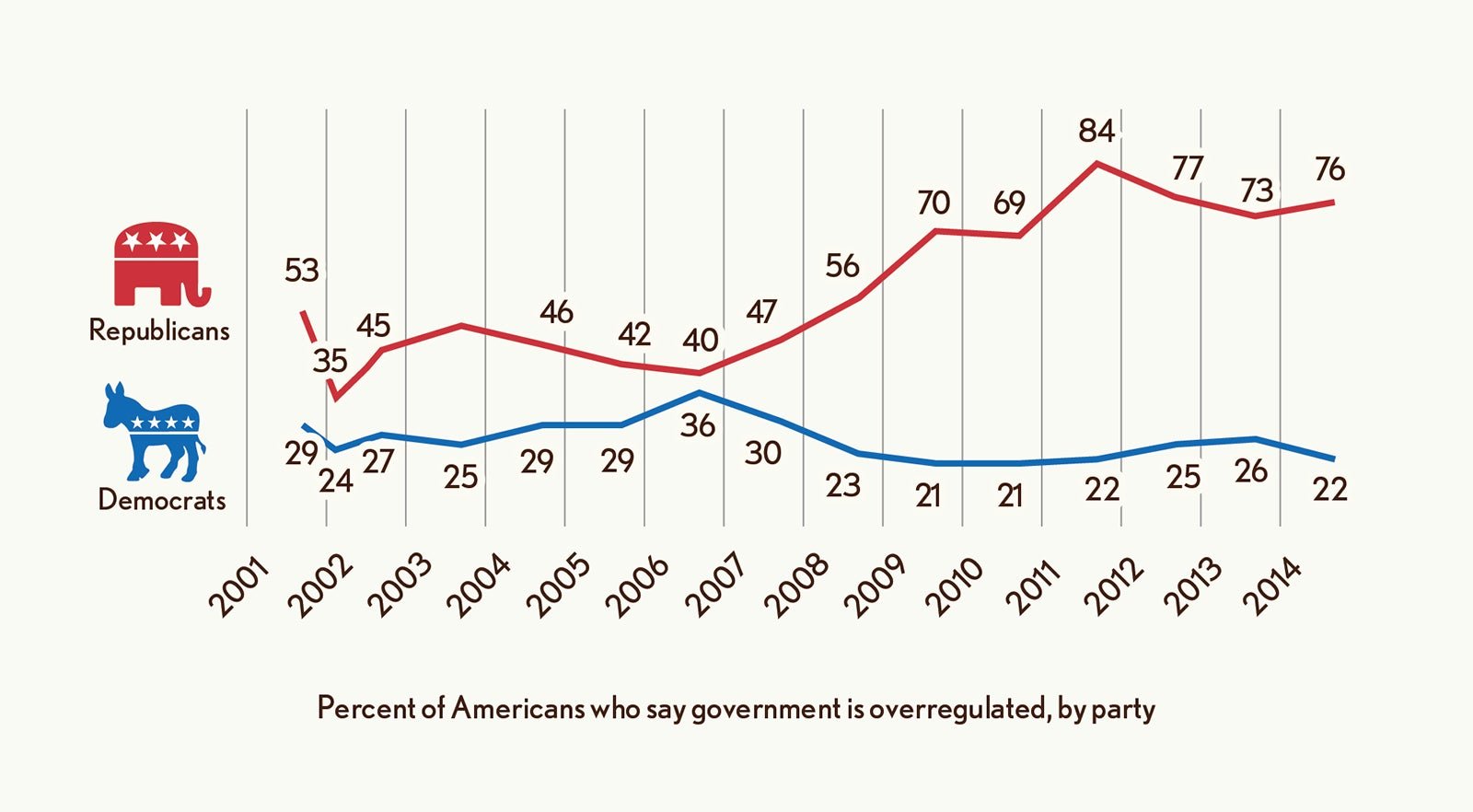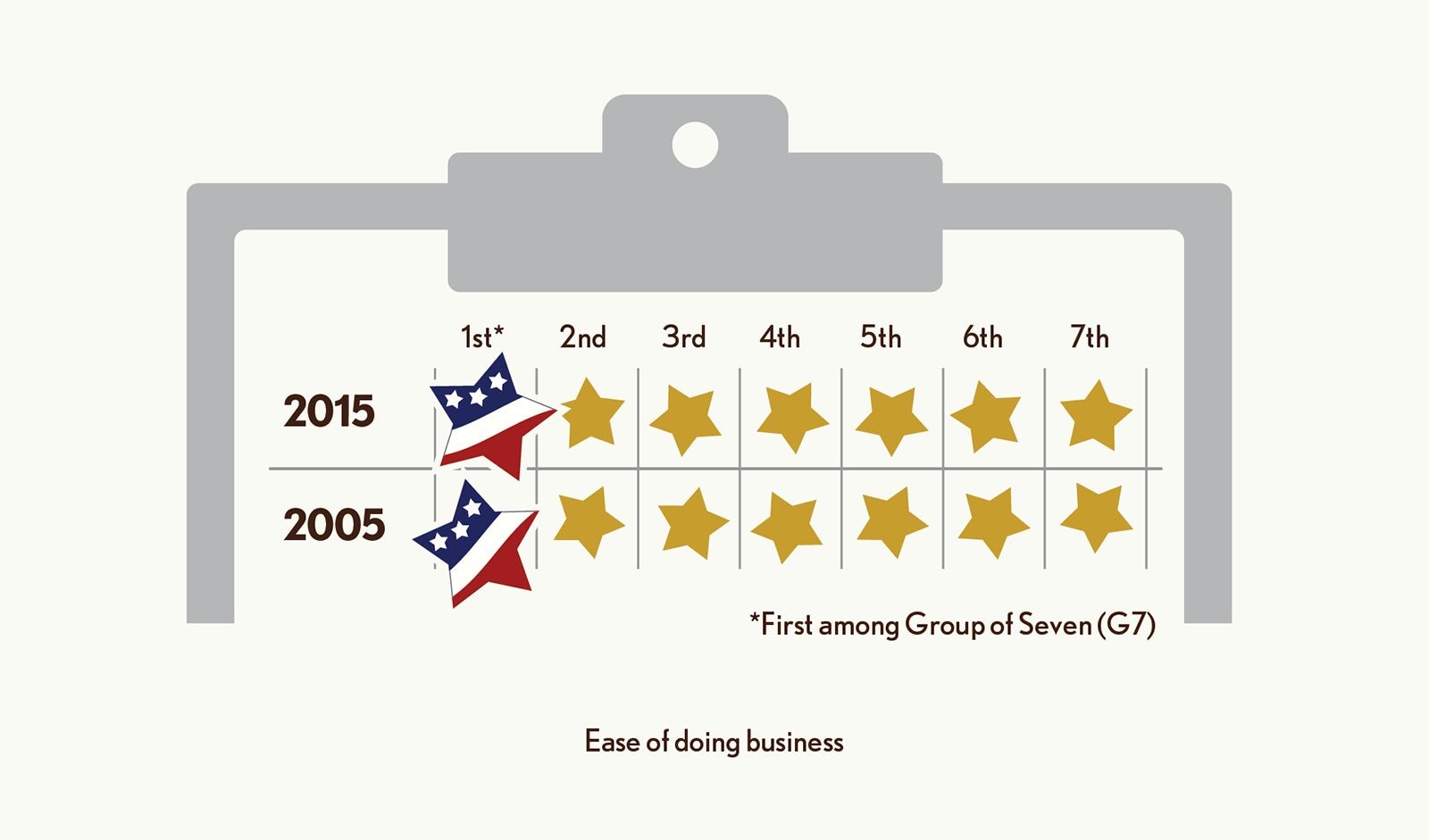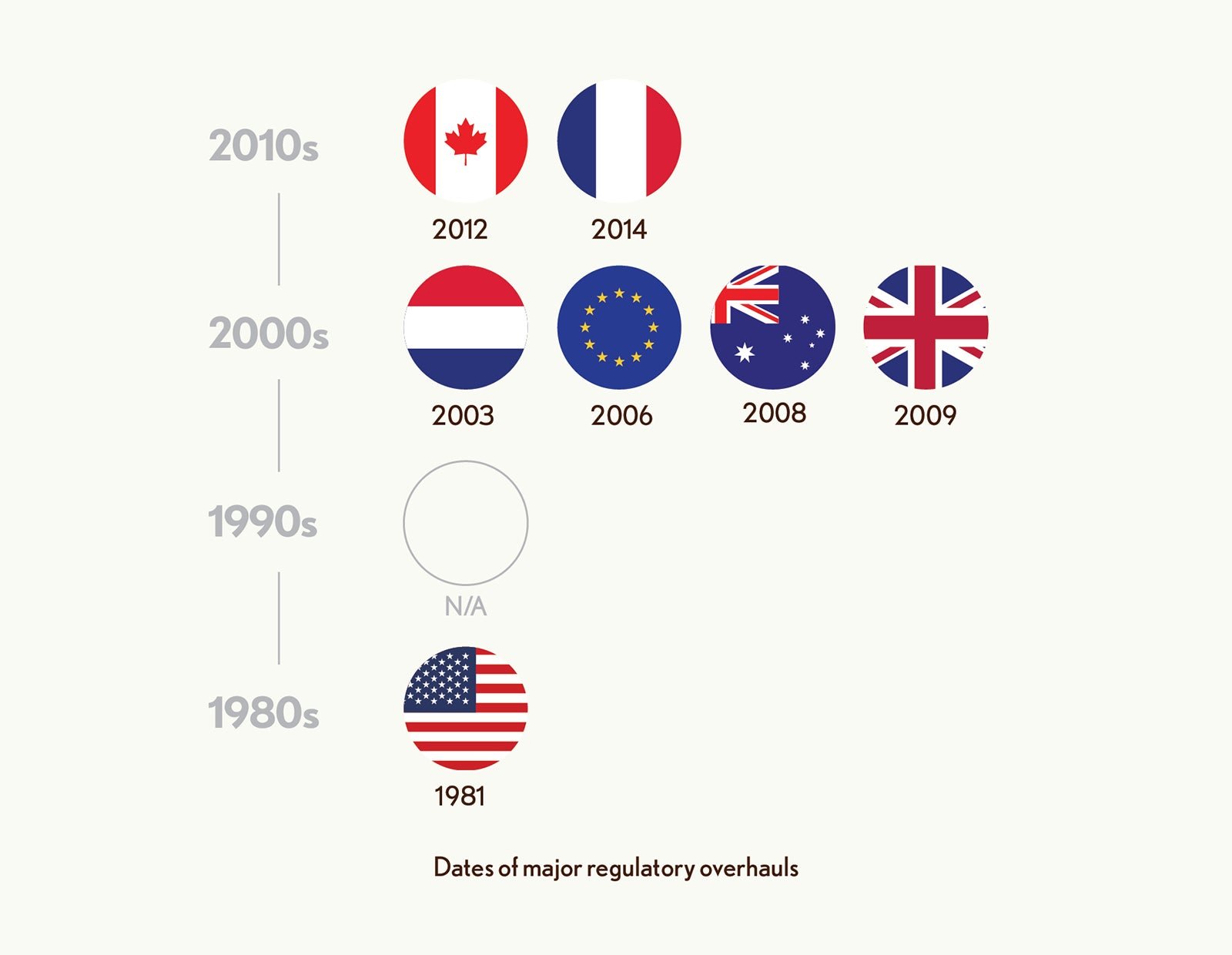The US economy needs smarter regulations, not fewer
The latest partisan wranglings over net neutrality are yet another reminder of just how divided Republicans and Democrats are over the costs and benefits of federal regulations—the vast swathe of rules that govern everything from air quality to auto safety.


The latest partisan wranglings over net neutrality are yet another reminder of just how divided Republicans and Democrats are over the costs and benefits of federal regulations—the vast swathe of rules that govern everything from air quality to auto safety.
The Obama administration’s new rules on coal emissions, mileage standards, and consumer protection are derided by GOP lawmakers as “job killers” that undermine the economic competitiveness of the United States in the global market. Democrats are equally passionate in their defense. But this rhetoric distorts the problem.
As we explain in a new CFR report, compared to other advanced economies, the United States is far from over-regulated. But it does a poorer job than many other developed countries in getting rid of regulations that no longer work. There should be fertile ground here for the two parties to cooperate in creating a more streamlined regulatory system, one that protects Americans more and hurts its companies less.
There is no question that the US is far more regulated than it used to be—regulations have been growing steadily in number for decades under both Democratic and Republican presidents, at least according to the crude metrics we have for measuring burden (like paperwork hours, or the number of pages in the list of federal regulations). It is also true that, under president Obama, new regulations have been more costly to the economy than they were during the George W. Bush’s two terms in office.
But while regulatory burden is up, it’s still lower than in nearly every other country on earth. The U.S. economy has long been among the least regulated in the world. It has been a consistently top-ranked country in the World Bank’s “Ease of Doing Business” index since it was first compiled in 2001. Data from the OECD say basically the same thing: the US performs better than any other G7 country, with less complex and fewer regulatory procedures, and lower barriers for startups.

The claim that regulations are destroying jobs is also overblown. Where there have been effects on job creation, they are almost always small and localized. Stricter standards on coal-burning plants, for example, may hit small towns in coal-producing West Virginia, but that’s only a drop in the gigantic bucket of the US labor market.
Regulatory burden among US states has zero statistical relationship with the unemployment rate or business startup or failure rate. More prosperous states like Massachusetts or New Jersey have more regulations, though this may be because wealthier communities demand it. Small businesses understandably grumble about regulations, since they cannot afford to spend the staff time that large businesses can on compliance. But the most costly regulations are environmental rules that hit big polluters the most, such as clean-air standards, and these tend to be large corporations, not small businesses.
Given this rhetoric, it is not surprising that Republican and Democratic voters differ more than ever on the virtue of regulations. Ever since Obama took office, public opinion has grown sharply partisan on an issue where the differences used to be much less extreme. Today, 76%of Republicans believe the government regulates business too much, nearly double what it was in 2007, but only 22% of Democrats agree.

While Republicans dislike regulations in the abstract, they are actually quite supportive of specific ones. According a 2012 Pew survey, the vast majority of Americans (and a clear majority of Republicans) either favored current levels of regulation, or wanted more regulation for the benefit of the environment, car safety and efficiency, and workplace safety. The public seems to intuitively understand that very costly environmental regulations, such as the Clean Air Act, have also carried the greatest benefits by making Americans healthier, thus allowing them to live longer. Survey results were roughly the same as 20 years ago, suggesting public opinion has been remarkably consistent (and positive) on the net effect of regulations.
The biggest problem with regards to regulation—and where other countries now have an edge on the US—is that we are lousy at figuring out if regulations, once in place, are actually working. The federal government does an adequate job of assessing costs and benefits with hypothetical assumptions before regulations are enacted, but rarely follows up afterward to check progress. As a result, the stock of older regulations piles up without a good process for determining which ones should be adjusted or pruned. In an infamous case, it took the federal government decades to remove the silly “spilled milk” provision that treated industrial dairy spills like toxic oil spills, and only after much media mockery.
It used to be that the rest of the world looked to the US for the latest innovations in regulatory management. We were the first country to create an agency (the White House Office of Information and Regulatory Affairs, known as OIRA, in 1980) whose sole purpose was to monitor the regulators themselves, and the first to make paperwork reduction an explicit goal. We were the first to take environmental impact assessment seriously, and the resultant Environmental Protection Agency (EPA) pioneered sophisticated cost-benefit analysis. But this system, while cutting-edge in the early 1980s, has failed to evolve with the times.

The developed world has now caught up, and some are passing us by. Countries like Australia, Canada, and the UK can now lay claim to the forefront of regulatory management. They have implemented systems that better manage existing stock—with regulatory budgets and automatic reviews—while also improving the filter for new regulations through empirical study. The UK, for example, has a “one-in, two-out” system that requires the elimination of two old regulations for every new one enacted.
Following their lead could at least spark the right debate. The issue isn’t whether we need fewer regulations. We need them to be smarter.